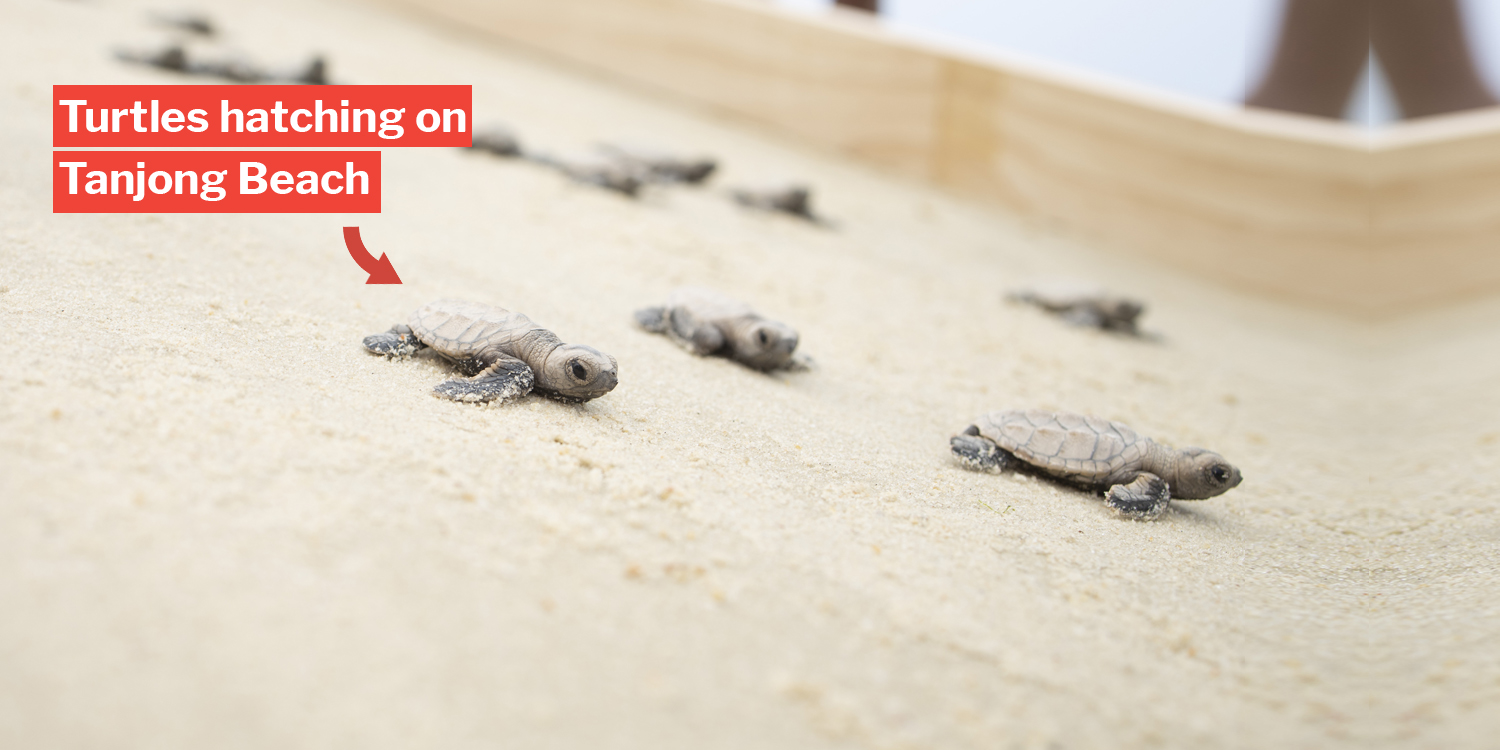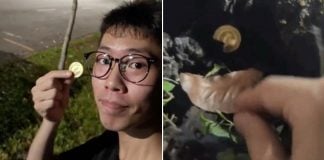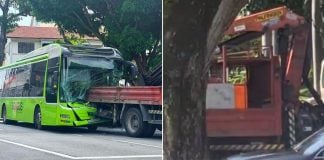There Have Been 5 Hawksbill Turtle Hatchings On Sentosa Since 1996
Staying on the resort island of Sentosa is a privilege that most of us can only dream of.
But on Tuesday (3 Sep) night, a strange exodus happened that saw over 100 of its ‘residents’ move out.
There’s a slight twist to it though. These ‘residents’ aren’t just normal humans. They’re actually baby Hawksbill turtles which had freshly hatched from their eggs.
The hatchlings were released into the sea the next day. Here’s a glimpse at some of the adorable turtles.
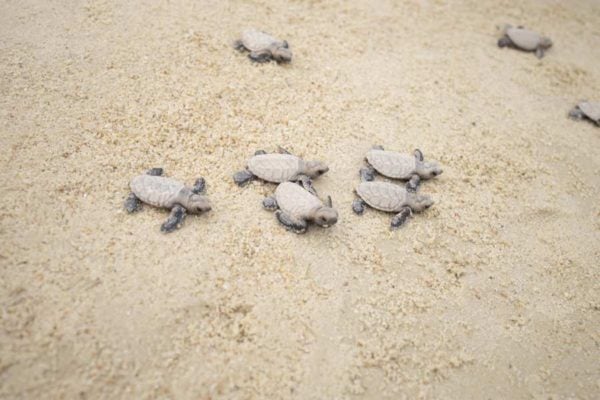 Image from Sentosa Development Corporation
Image from Sentosa Development Corporation
Hawksbill turtles hatch on Tanjong Beach
The Hawksbill turtle nest was first discovered on Tanjong Beach back in July.
A protective barrier was swiftly erected around the nest to protect the precious eggs from potential predators like monitor lizards and crabs.
For illustration purposes
Source
Periodic checks were conducted by the authorities to ensure that the nest was safe.
On Tuesday (3 Sep), the eggs hatched and “emerged” at around 10pm. The SDC proceeded to measure and conduct checks on the hatchlings before releasing them into the sea at 7am the next morning.
 Image from Sentosa Development Corporation
Image from Sentosa Development Corporation
Hawksbill turtle sightings in Singapore have increased
Since 1996, there have been 5 instances of Hawksbill turtles hatching on Sentosa Island, 2 of which occurred in 2018.
Hawksbill turtles are classified as a critically endangered species by the WWF. Their numbers have dwindled by up to 80% as a result of human activities.
Yet in recent years, sightings of Hawksbill turtles in Singapore have risen significantly.
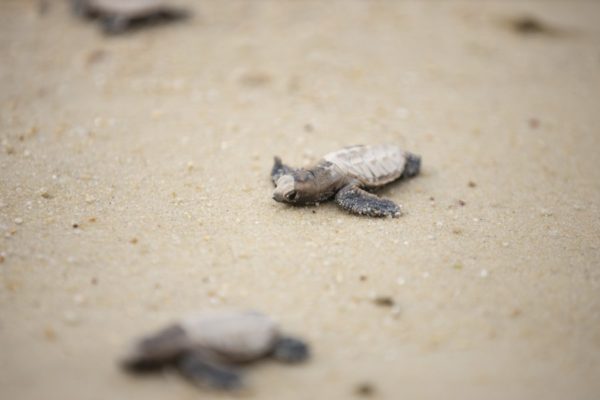 Image from Sentosa Development Corporation
Image from Sentosa Development Corporation
Just last year, an adult Hawksbill turtle was spotted at a section of the beach along ECP, presumably to lay eggs.
Never thought I’d see a sea turtle coming out of the water in Singapore. pic.twitter.com/jMsqiWIZXn
— Ty Lee (@Ahteacar) August 7, 2018
Hope more Hawksbill turtles will hatch on Singapore shores
If you happen to be lucky enough to encounter one of these hatchings, here’s what to do, courtesy of NParks.
- Speak softly
- Keep your distance
- Refrain from using lights and flash photography
- Avoid touching the turtles
- Do not touch the turtles’ eggs
You can also contact the NParks helpline at 1800 471 7300 to report your sighting.
We hope more Hawksbill turtles will hatch on our shores in the future, which will surely excite animals enthusiasts and get the young ones marvelling at Mother Nature’s countless wonders.
Featured image from Sentosa Development Corporation.
